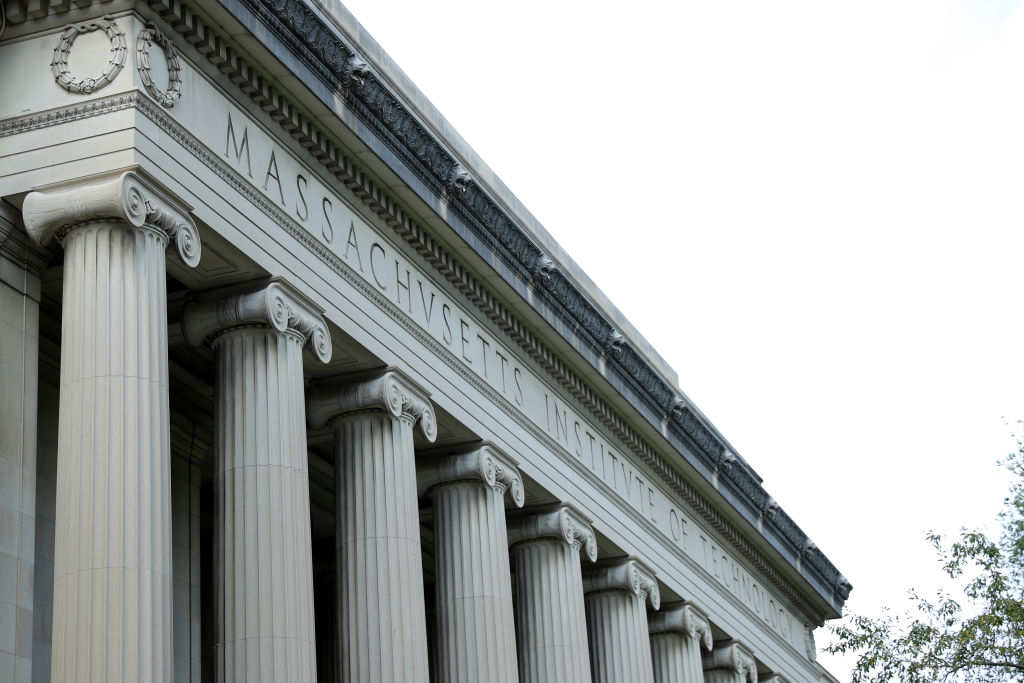‘Americans must know how the Chinese Communist party is poisoning the well of our higher education for its own ends, and how those actions degrade our freedoms and our national security. If we don’t educate ourselves, if we’re not honest about what’s taking place, we’ll get schooled by Beijing.’
Wise words there from Mike Pompeo, if you can forgive the slightly feeble wordplay. The secretary of state made the remark in a speech to Georgia Tech at the end of last year. He claims he wanted to give a similar speech to MIT but was rejected by the university’s authorities because of concerns about Sinophobia.
Perhaps they should have listened instead.
On Thursday, Gang Chen, a professor and researcher at MIT, was arrested and charged for ‘hiding’ work he did with the Chinese government while also receiving a grant from the US Department of Energy for his work on nanotechnology.
Since 2013, Chen’s research at MIT has been funded by more than $19 million of American taxpayer money through various federal agencies, yet Chen also allegedly pocketed $29 million of foreign funding, primarily from entities tied to the CCP. He’s also accused of holding various appointments for the Chinese government over the years, including ‘overseas expert’, which were not declared on his federal grant applications. Authorities believe that many of his roles ‘expressly intended to further [China’s] scientific and technological goals’.
In 2016, Chen sent an email to himself from his MIT account which appears to be notes on how to best promote Chinese scientific and economic development. The email reads:
‘1. promote chinese collaboration
2. China places innovation (scientific) as key and core not fashion [sic], but because
we must do it, from historic trend as well from our stage
3. our economy is no. 2, but from technology (structure of economy) and human
resources, we are far from no. 2
4. we are paying big price in environment, not sustainable, as well as from labor cost
5. environment protection and development in same place, environment even higher, clean energy if higher cost, reduce steel, cement. We must count on technology, cannot grow as past
6. communist 18th convention, scientific innovation placed at core. We realize not just independent innovation; but also internationalize to plan for and facilitate. Closed door innovation does not work; innovation as driving force’
At a press conference announcing the charges against Chen, FBI Special Agent in Charge Joseph R. Bonavolonta warned about the state of Chinese espionage in the US:
‘It has become much too commonplace that the ruling Communist party of China thinks it can conduct illegal activity, and bend people here in the United States to its will… To put this threat into perspective, we have now reached the point where the FBI is opening a new China-related counterintelligence case about every 10 hours.’
Ominous.
It came as no surprise to Cockburn to see that in the world of academia Chen’s arrest has been met with accusations of racism. ‘[This is] one of the worst cases of academic racism in the 21st century,’ wrote Rao Yi, head of Beijing’s Capital Medical University, in an open letter to the president of MIT. Rao — who renounced his US citizenship in 2009 — previously claimed that the Trump administration is targeting Chinese scientists for ‘no good reason’ as a display of ‘political intimidation’.
Chen’s arrest comes a year after a nanotechnology expert at Harvard, the very un-Chinese Professor Charles Lieber, was arrested and charged with lying about his connections to China’s Thousand Talents Plan. In August, a Texas A&M University professor, Zhengdong Cheng, who was working on a NASA project, was also arrested for obscuring his affiliations with a Chinese University and at least one Chinese-owned company.


















